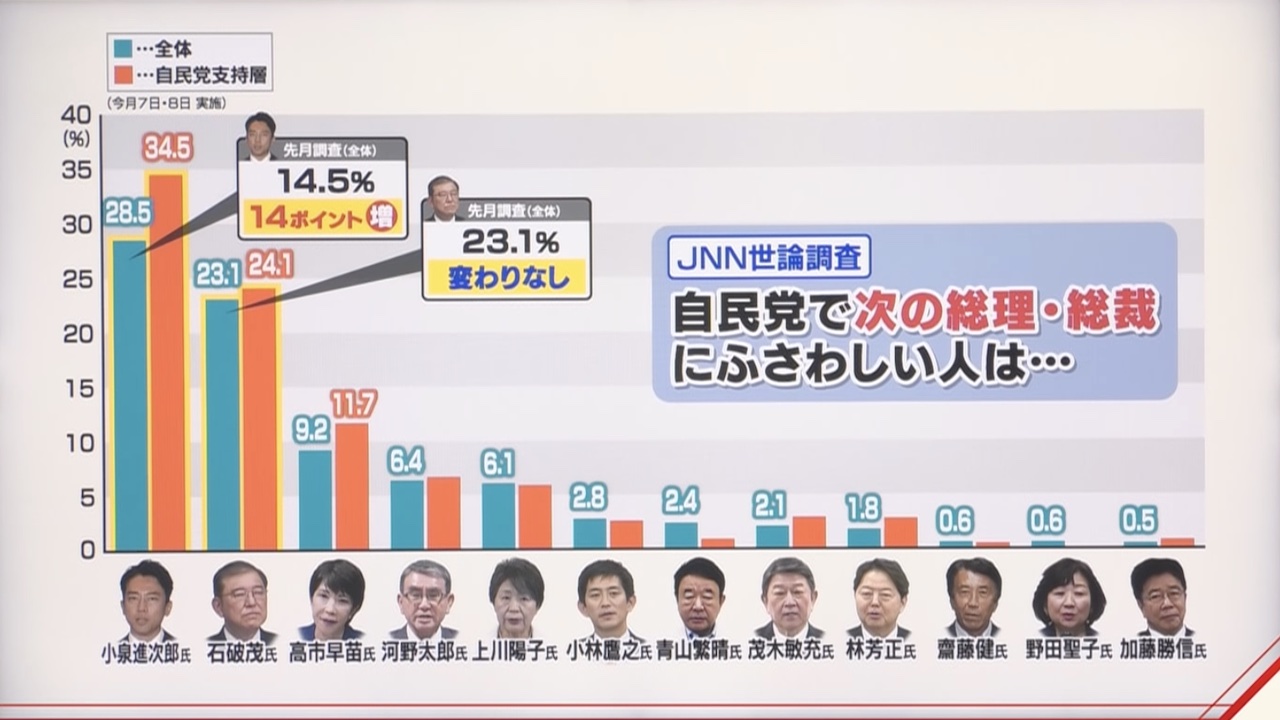TOKYO, Sep 10 (News On Japan) - The ongoing debate over the legalization of separate surnames for married couples in Japan is a topic that has polarized both politicians and the public for over three decades.

Despite growing support from the general public, conservative factions within the ruling Liberal Democratic Party (LDP), such as Japan Conference (Nippon Kaigi), have strongly opposed the change, citing concerns over family unity and traditional values. The article outlines how this issue has become a focal point in the current LDP leadership election, with candidates taking varied stances on the matter.
Former Environment Minister Koizumi, a prominent figure in the LDP leadership race, has expressed strong support for allowing married couples to have separate surnames. He went so far as to propose legislation that would introduce this system without party restrictions, signaling a progressive shift within the traditionally conservative party. On the other hand, Kōichi, another key candidate, has shown reluctance, advocating instead for policies that would expand the use of maiden names in daily life without changing the family registration system. His cautious approach reflects the influence of conservative groups and their fear that such changes could erode Japan’s social fabric.
The article highlights the deep-rooted opposition from groups like Japan Conference, which argue that separate surnames would weaken the family structure, ultimately threatening societal stability. These conservative organizations, which have a significant influence over the LDP, have long campaigned against liberal reforms, including the legalization of same-sex marriage and other progressive social policies. Their concerns about a "slippery slope" leading to the breakdown of traditional family units have contributed to the stagnation of the debate, despite widespread public support for change.
A significant portion of the article is dedicated to exploring the reasons why the issue has remained unresolved for so long. Although public opinion surveys show that nearly 70% of respondents support the idea of allowing separate surnames, the conservative factions within the LDP have managed to block any legislative progress. Political endorsements from groups like Japan Conference have further solidified this stance, with many LDP candidates, including some who are perceived as progressive, signing pledges opposing separate surnames to secure votes.
The article also touches on the broader implications of the debate, framing it as a question of human rights and personal identity. Supporters of the reform, such as political commentator Yuko Ando, argue that forcing individuals to change their surname after marriage can feel like an erasure of their personal identity. For Ando and others, the debate is not just about family law but also about recognizing the rights of individuals to retain their identity and autonomy within marriage.
In conclusion, the article suggests that the LDP leadership election may serve as a pivotal moment for this long-standing issue. With candidates like Koizumi advocating for change and gaining momentum, there is a possibility that Japan’s family laws could finally be reformed to reflect modern social realities. However, the opposition from conservative factions remains strong, and the outcome of the leadership race will likely determine the future direction of the debate on separate surnames for married couples.
Source: TBS















